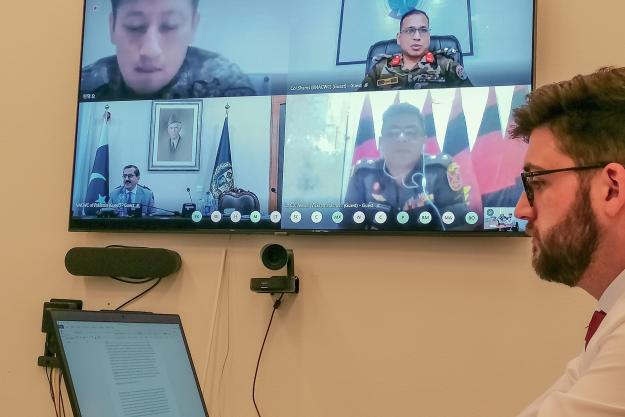
THE HAGUE, Netherlands —16 July 2020 —The Organisation for the Prohibition of Chemical Weapons (OPCW) organised an online meeting on 15 and 16 July for partner training centres for assistance and protection in the Asia region. The meeting’s purpose was to share OPCW’s plans to maintain cooperation with partner training centres under the Covid-19 restrictions. It also provided an opportunity for OPCW staff to hear how partner training centres have adapted their courses, to discuss future plans, and to agree next steps.
The OPCW’s Director of the International Cooperation and Assistance Division, Ms Kayoko Gotoh, described the significant changes that had been made to the OPCW’s International Cooperation and Assistance activities to take Covid-19 into account. Ms Gotoh also underscored the importance of face-to-face training and framed online training as a “supplementary and complementary opportunity to broaden and enhance the package of capacity building support offered to OPCW Member States”.
Participants from OPCW partner training centres shared their experiences with how Covid-19 restrictions have affected their own activities and provided valuable insights into developing online regional training courses for Asia. Emphasis was placed on the importance of communicating and working together in order to maintain capacity building activities. Participants agreed to a plan of action for establishing an online regional assistance and protection basic training course and ensuring regular face-to face trainings restart promptly when conditions permit.
Twenty-two participants representing partner training centres and National Authorities of seven OPCW Member States took part in the meeting: Bangladesh, China, Malaysia, Pakistan, Singapore, South Korea and Sri Lanka.
Background
As the implementing body for the Chemical Weapons Convention, the OPCW, with its 193 Member States, oversees the global endeavour to permanently eliminate chemical weapons. Since the Convention’s entry into force in 1997, it is the most successful disarmament treaty eliminating an entire class of weapons of mass destruction.
Over 98% of all chemical weapon stockpiles declared by possessor States have been destroyed under OPCW verification. For its extensive efforts in eliminating chemical weapons, the OPCW received the 2013 Nobel Peace Prize.
